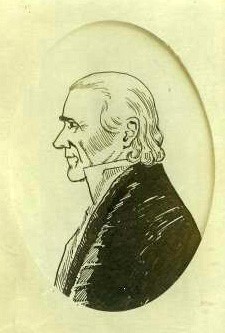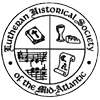 Pennsylvania German, “Dutch” pioneer, interpreter, diplomat, farmer, soldier, tanner, judge, successful businessman and family patriarch, Conrad Weiser is best known for his work with native Americans. As Indian agent for several colonies, especially Pennsylvania, but also New York and Virginia, he negotiated every peace treaty from 1732 up to and during part of the French and Indian War. Attacks upon his own community ultimately caused him to personally respond with military service. While this may seem like the final failure of his diplomatic efforts, the prior decades of peace on the colonial American frontier remain a testimony to his commitment to peace. His work remains such an example of the value of peacekeeping that a pamphlet biography of his life, subtitled “Pennsylvania Peacemaker,” was distributed to representatives of the United Nations early in its history, attempting to unsuccessfully influence their selection of the City of Brotherly Love, Philadelphia, as world headquarters.
Pennsylvania German, “Dutch” pioneer, interpreter, diplomat, farmer, soldier, tanner, judge, successful businessman and family patriarch, Conrad Weiser is best known for his work with native Americans. As Indian agent for several colonies, especially Pennsylvania, but also New York and Virginia, he negotiated every peace treaty from 1732 up to and during part of the French and Indian War. Attacks upon his own community ultimately caused him to personally respond with military service. While this may seem like the final failure of his diplomatic efforts, the prior decades of peace on the colonial American frontier remain a testimony to his commitment to peace. His work remains such an example of the value of peacekeeping that a pamphlet biography of his life, subtitled “Pennsylvania Peacemaker,” was distributed to representatives of the United Nations early in its history, attempting to unsuccessfully influence their selection of the City of Brotherly Love, Philadelphia, as world headquarters.
Not as well-known is that Weiser was a deeply spiritual individual and an active lay Christian leader in his day and place. Born 2 Nov 1696 in the Lutheran Duchy of Württemberg, now part of Germany, he like so many persons of deep faith experienced episodes of great doubt. While periods of discernment led to flirtations with other Christian doctrines, Lutheran Soli Deo Gloria and Solus Christus were the lenses which defined his overall faith experience.
He migrated while still a child with his parents, siblings and other Palatines, first to London, then to the Schoharie region of New York. In his youth, he definitely learned of the deep native American spirituality along with their language and culture when he lived with them at the behest of his father. After floating down the Susquehanna as a young man, he built his own home in 1729 near what would become the town of Womelsdorf, PA, then a wilderness only opened to white settlers several years earlier. There, Weiser saw the challenges early Lutherans faced in the absence of spiritual leadership from trained and ordained pastors. In particular his own, original congregation in the local region, Reeds/Stouchsburg, PA, was embroiled for years in the local polity struggle known as the Tulpehocken Confusion.
During this period, Weiser perhaps went through his deepest spiritual struggles. For a time he lived away from his own home and wife, monastically residing in the German Seventh Day Baptist (Dunkard) religious community at Ephrata, PA. He was also involved with the Moravian church. Finally, when other members of Reeds chose to split from the continuing dissension and form another congregation, Weiser became a founding (1743) member of Christ Lutheran/Stouchsburg. There he served on the church council, and among other things, donated the original church pews. Considered the founder of Reading, Berks County seat, he helped found Trinity Lutheran (1753) and at its dedication, prepared a German hymn of 13 stanzas for the occasion. He also assisted other denominations to obtain land for their churches in the new city. Not coincidentally, during the same time period, one of Weiser’s daughters, Anna Maria, married the patriarch of the American Lutheran church, Henry M. Muhlenberg–only one of the other many Founding Fathers who were part of that early American network of Conrad Weiser.
Speaking to white men following Weiser’s death in 1760, an Iroquois said, “”We are at a great loss and sit in darkness…as since his death we cannot so well understand one another.” There are many physical memorials bearing his name in southeastern Pennsylvania. Conrad Weiser’s homestead in northern Berks County, Pennsylvania is a state park and museum. Nonetheless, recognizing his spiritual depth and contributions to American Christian history, the Episcopal Church, USA includes his date of death (13 July) on its liturgical calendar.
-Kevin Hepler
